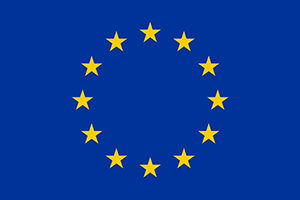Main aims of the ESCAPE - NET project
Sudden cardiac arrest (SCA) causes ~20% of all deaths in Europe. SCA is lethal within minutes if left untreated and survival rates are presently only 5-20%. Therefore, there is a large medical need to improve SCA prevention and treatment.
Designing effective individualised prevention and treatment strategies require knowledge on genetic and environmental risk factors. So far, these efforts have been hampered by the lack of sufficiently large study cohorts of SCA patients with detailed information. Obtaining SCA patient samples is challenging as the condition happens suddenly and unexpectedly.
In this project, leading European scientific teams which have created large relevant population cohorts, mostly dedicated to SCA research, join forces to fully exploit available data towards improving SCA management.
This will be done through :
- Building a unique and growing database of >100,000 (DNA) samples including >20,000 SCA patient samples, by combining existing European databases and infrastructures.
- Identifying risk factors (inherited, acquired, environmental) and first-response treatment strategies that may explain the differences in SCA occurrence and survival between European countries.
- Collaborating with professional networks, such as the European Heart Rhythm Association, and European Resuscitation Council, to translate the outcomes into European clinical practice for the prevention of SCA, and European infrastructures to improve survival after SCA.
To achieve the project aim, the following sub-objectives are defined:
Objectives towards population cohort integration
- To combine Europe’s largest deep-phenotyped SCA cohorts for full exploitation of the data.
- To improve and maximise data sharing and stimulate hypothesis-driven research by using new technologies in building and maintaining this large-scale database.
- To develop a financial strategy to keep the database alive after the duration of the project.
Objectives towards prevention
- To identify genetic, epigenetic, acquired, and environmental risk factors, and their interactions, for SCA occurrence in a combined large-scale European study population.
- To design a personalised risk score for SCA occurrence.
- To validate the personalised risks core.
Objectives towards treatment
- To relate differences in first-response SCA treatment strategies to survival across different European countries.
- To evaluate effects of novel technologies for SCA treatment by utilising smartphone applications (for rapid deployment of lay rescuers) and ICT solutions (wave form analysis).
- To design a personalised risks core for survival after SCA.
In this project, the large international scientific societies/associations European Heart Rhythm Association (EHRA) and the European Resuscitation Council (ERC), are involved as project partners in order to translate the outcomes into European clinical practice for the prevention of SCA, and European infrastructures to improve survival after SCA.
ESCAPE-NET Partners
| Participant Number | Participant Organisation Name | Country |
|---|---|---|
| 1 ( Coordinator ) | Academic Medical Center (AMC) | NL |
| 2 | University of Copenhagen (UC-REGIONH) | DK |
| 3 | Unisersite Paris Descartes, Inserm (UP) | FR |
| 4 | University of Pavia ( UPAV) | IT |
| 5 | IRCCS Istituto Auxologico Italiano (AUXO) | IT |
| 6 | VU University Medical Center | NL |
| 7 | European Society of Cardiology (ESC)* | FR |
| 8 | BC Platforms (BCP) | FI |
| 9 | Karolinska Institute (KI) | SW |
| 10 | Emergency Medical Services of the Hradec Kralove Region (EMS) | CZ |
| 11 | European Resuscitation Council (ERC) | BE |
| 12 | Istituto di Ricerche Farmacologiche "Mario Negri" (IRFMN) | IT |
| 13 | Panaxea (PAN) | NL |
| 14 | Fundacio Institut Mar d'Investigacions Mediques (IMIM) | ES |
| 15 | Catalyse (CAT) | NL |
| 16 | Helmholtz Zentrum Munchen (HZM) | DE |
* Represented by the European Heart Rhythm Association (EHRA) a branch of the European Society of Cardiology (ESC)
News
October 2021 - Press Release Consortium Meeting: The ESCAPE-NET consortium meeting was held in Amsterdam on 26 & 27 October 2021. Access the article here.
June 2018 - Cardiac Rhythm News: European Sudden Cardiac Arrest network will look at gender-based prevention and treatment. Access the article here.
April 2018 - CORDIS: Scientists across Europe are creating a large database of sudden cardiac arrest cases to improve direct patient care. Access the article here.
January 2018 - European Heart Journal (Cardio Pulse) : A major European Horizon 2020 project focused on cardiac arrest. Access the article here.
















